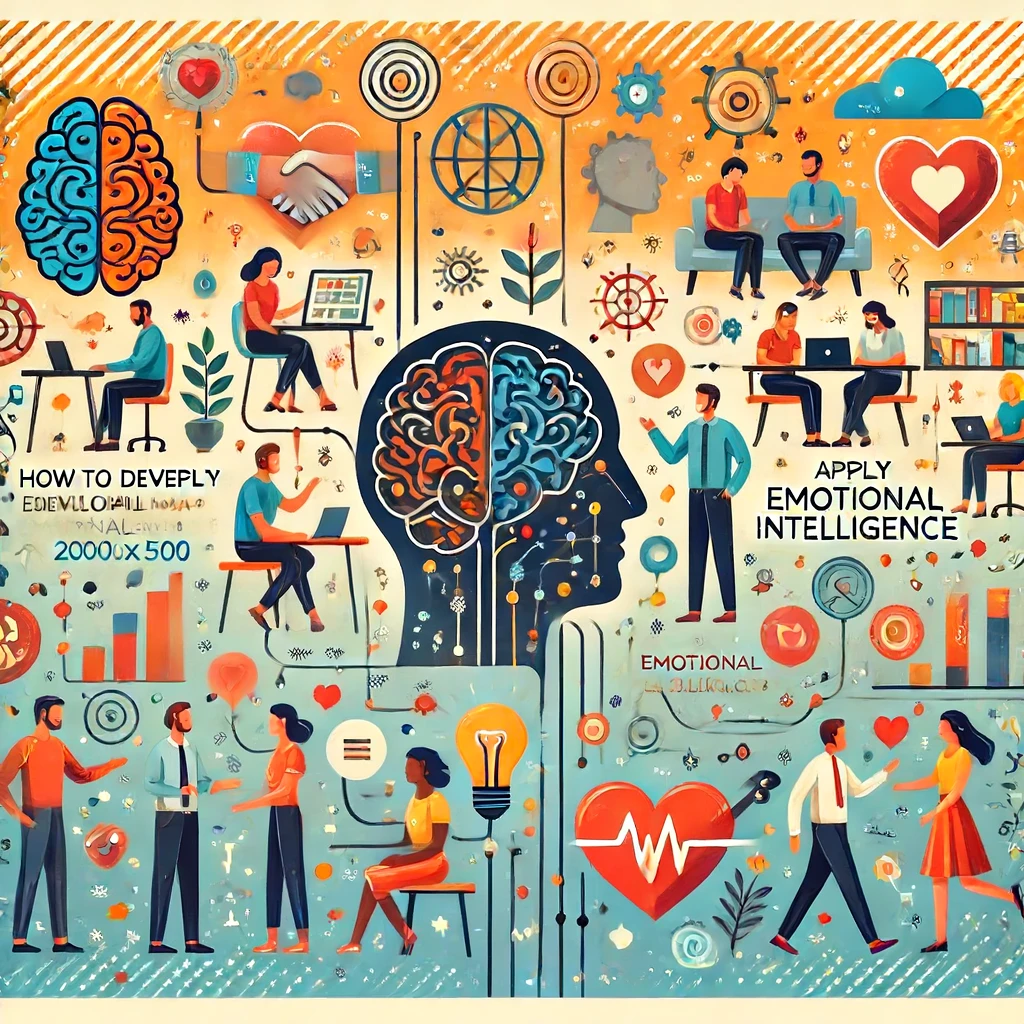Published - Sat, 15 Jun 2024

How to develop and apply emotional intelligence in various aspects of life
Emotional intelligence, also known as EQ, is a vital skill that can greatly impact every aspect of our lives. From our relationships with others, to our professional success and overall well-being, developing and applying emotional intelligence can lead to more fulfilling and rewarding experiences. In this post, we will explore how you can cultivate your emotional intelligence and apply it in different areas of your life.
One of the key aspects of emotional intelligence is self-awareness. This involves being in tune with your own emotions, thoughts, and reactions. By understanding your own triggers and tendencies, you can better regulate your emotions and make more informed decisions. To develop self-awareness, consider keeping a journal to track your emotions and reflect on your behaviors. This can help you identify patterns and make positive changes as needed.
Another important aspect of emotional intelligence is empathy. This involves understanding and considering the emotions of others, and being able to respond with compassion and understanding. To cultivate empathy, practice active listening and try to see things from the perspective of others. This can help you build stronger relationships and navigate conflicts more effectively.
In addition to self-awareness and empathy, emotional intelligence also involves managing emotions effectively. This means being able to regulate your own emotions and respond in a productive manner. Techniques such as deep breathing, mindfulness, and positive self-talk can help you stay calm and collected in challenging situations. By managing your emotions effectively, you can avoid making impulsive decisions and act with greater clarity and purpose.
In terms of applying emotional intelligence in various aspects of life, here are a few examples:
In the workplace, emotional intelligence can help you communicate effectively, resolve conflicts, and build strong relationships with colleagues. By being aware of your own emotions and those of others, you can navigate office dynamics with greater ease and professionalism.
In personal relationships, emotional intelligence can lead to deeper connections and more meaningful interactions. By showing empathy, understanding, and patience, you can strengthen your bonds with loved ones and create a more harmonious environment.
In leadership roles, emotional intelligence can help you inspire and motivate others, make sound decisions, and create a positive work culture. By leading with empathy, self-awareness, and emotional regulation, you can foster a supportive and productive team dynamic.
Overall, developing and applying emotional intelligence can lead to greater self-awareness, empathy, and emotional regulation. By cultivating these skills, you can navigate life's challenges with greater ease and grace, and foster more fulfilling relationships and experiences. So take the time to work on your emotional intelligence, and watch how it transforms various aspects of your life for the better.
Comments (0)
Search
Popular categories
Fairytale
7Self-Improvement and Personal Development
7Animals
2Personal Developments
1Futuristic Fiction
1Diplomas
1Latest blogs

Discover Your Path: A Must-Read Guide for Teens - Your Future Career: Exploring Career Options for Teens Are you a teen standing at the crossroads of your future, wondering which career path to take? Or perhaps you’re a parent looking to provide the best
Sun, 18 Aug 2024

The Time Machine
Mon, 12 Aug 2024

Unlock Your Potential: Self-Improvement Tips for Teens
Sat, 10 Aug 2024
Write a public review